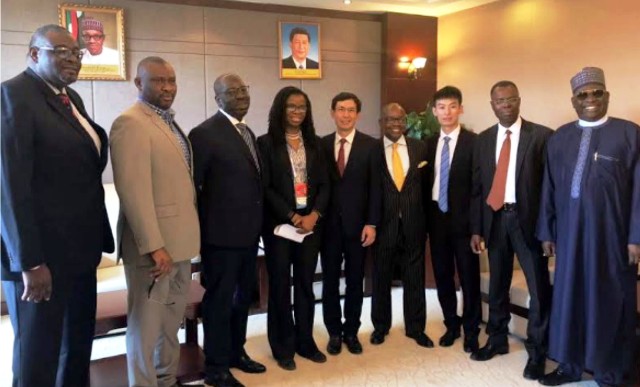The Federal Government has been urged to balance consumer protection with farmers’ sustainability by ensuring timely food imports, input subsidies expansion and price stabilisation mechanisms to secure investments across the agricultural value chain.
An agriculture expert, Dr Fatai Afolabi, gave the advice at a forum organised by the Plantation Owners’ Forum of Nigeria (POFON), in collaboration with the Oil Palm and Other Oil Seeds Value Chain, themed ‘Current Government Food Strategy, the Concomitant Effects and Implications for Food Security in Nigeria’, and held in Lagos, Wednesday.
Afolabi cautioned that the recent food import policies, while easing consumer prices, could undermine local farmers and long-term food security if not carefully managed.
He noted that Nigeria’s food system was navigating an exceptionally difficult period, marked by inflationary pressures, climate variability, insecurity in major food-producing regions, and rising energy and logistics costs.
He said the Federal Government’s decision to temporarily relax restrictions on selected food imports was understandable, noting that the market had responded swiftly with a reduction in prices of major staples.
However, the convener observed that while the policy had brought much-needed relief to consumers, it posed significant challenges for local farmers and agriculture value chain investors.
“While output prices have fallen, the cost of producing food in Nigeria remains stubbornly high.
“Farmers continue to contend with expensive fertilisers, rising transport costs, costly improved seeds and agrochemicals, limited access to affordable credit, poor electricity supply, weak road infrastructure, and inadequate storage and processing facilities, which result in significant post-harvest losses.
“This situation, where farmers sell produce at declining prices while production costs remain elevated, has created widespread distress across agricultural ecosystems,” he said.
Afolabi said the effects were being felt across all segments of agriculture, with rice farmers among the hardest hit.
He said reports from producing states indicated that about 3,500 rice farmers were considering exiting rice cultivation after incurring estimated losses of over N93 billion.
He added that cassava farmers were selling produce at prices that barely covered harvesting costs, leaving them unable to recover their investments.
According to him, vegetable and edible oil producers are also under pressure as imported vegetable oil brands reduce demand for locally processed alternatives.
He added that cocoa farmers continue to battle price volatility in international markets amid rising domestic labour and maintenance costs.
Afolabi noted that tree crops such as oil palm and cocoa, which require long gestation periods, were particularly vulnerable to sudden market disruptions that undermine investor confidence and discourage new investment.
He said the effects extended downstream to agro-processing and value addition, with soybean farmers supplying vegetable oil processors experiencing reduced demand and lower prices.
He said the development threatened not only farm incomes but also rural employment and agro-industrial growth, raising concerns about national food security.
According to him, sustained losses could force farmers out of production, increasing Nigeria’s dependence on food imports and exposing the country to global supply shocks, foreign exchange pressures and long-term vulnerabilities.
Afolabi cited India and the Netherlands as countries offering useful lessons in balancing consumer protection with farmer sustainability.
He said India deploys food imports strategically during shortages, while complementing them with strong domestic support systems.
He added that the Netherlands, despite being one of the world’s leading agricultural exporters, supports farmers through input subsidies, tax incentives, affordable energy, strong cooperatives, and close integration with research and extension services.
He said agricultural students in both countries also benefit from subsidised tuition, transportation and meals, as well as grants and start-up support for farm enterprises.
“This approach ensures generational continuity and innovation in the agricultural sector,” he said.
Afolabi said Nigeria’s current food import policy could play a stabilising role if complemented by deliberate measures to protect local producers.
He recommended carefully timed imports to avoid peak harvest periods, strengthened price stabilisation mechanisms, aggressive subsidies for critical farm inputs, and support for agro-processors to remain competitive.
He also called for clear communication of policy intentions to reassure farmers that import measures were strategic and temporary.
“Food imports should function as a strategic shock absorber rather than a permanent market feature.
“Government should develop and publish a national crop production and harvest calendar for major staples and align import decisions with documented supply gaps.
“Affordable food and profitable farming are not mutually exclusive goals. With thoughtful coordination and sustained support for farmers, Nigeria can achieve both,” he said.




 Politics2 days ago
Politics2 days ago
 Business2 days ago
Business2 days ago
 Sports2 days ago
Sports2 days ago
 Featured2 days ago
Featured2 days ago
